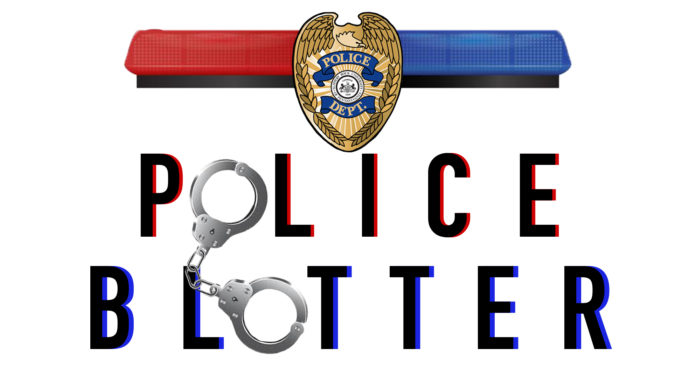Our View is a staff editorial produced collaboratively by the entire Rocket Staff. Any views expressed in the editorial are the opinions of the entire staff.
To review our editorial policy, which includes our blotter policy, click here.
In this semester alone, 76 names have been listed in the police blotter published weekly in The Rocket.
The Rocket began publishing police blotter entries beginning in around February 1994. Since then, we have regularly published campus crime reports as police report per the Clery Act.
Since the ’90s, our assistant news editor has traveled across the street to the university police station each week. Each blotter can contain charges for alcohol violations, drug possessions, disorderly conduct and thefts.
The blotter isn’t limited to entries about these charges, however. Other blotters from the past included information about burnt food setting off fire alarms, calls from concerned parents, accidental EpiPen exposures and students sleeping in cars in between class.
The information included in the police blotter, including the names of students who are 18 years or older, are public information. The police blotter’s original purpose is to inform the public of campus activities in crimes to be better informed citizens.
Prior to this blotter, there were no standards for public reporting of campus crime. Unfortunately, it took the tragic rape and murder of Jeanne Clery in 1986 in her Lehigh University dorm room for the Clery Act to pass in 1990.
Since the Clery Act, The Rocket has maintained its coverage of campus crime in efforts to inform the SRU community about campus crime events and, in some cases, the exact names of who is responsible for crimes.
Power lies in knowledge, and humorous blotter entries aside, the police blotter can help inform decisions that keep students and community members safer.
However, there is always a possibility for error in the blotter. The information for the blotter is received from university police records, and miscommunications and typos do happen. A name may unintentionally appear more than once in police records and the blotter, or there could be a general typo or misspelling.
The blotter is designed to let the SRU community be better informed to make decisions. In a more recent example, a senator of the Student Government Association was recently named in the police blotter for an alcohol violation. Now, SGA will need to revisit its bylaws to consider setting a precedent for cases in which senators receive these types of violations.
Our regular blotter coverage also holds our own university accountable. When trends are found in the blotter, such as car accidents on a certain road off campus or consistent alarm malfunctions, university administration must use this information to make appropriate changes with student safety in mind.
It’s each student, faculty and administrator’s responsibility to represent Slippery Rock University in a positive light. As one of only a few student media organizations dedicated to daily media coverage of SRU, it’s our responsibility to cover this news as it happens.







